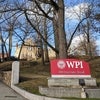Winter Will Test Bank Owned Properties
A few weeks back, Worcester plumber Daniel Voellings got a call about preparing a foreclosed home in the city to sit out the winter unoccupied and unheated. It was his first such call of the season, and it didn’t go well.
“When I went there to look at the job, somebody else had already done it,” said Voellings, the residential general manager for Garabedian Plumbing & Heating Inc.
Done it to the extent possible, that is. Aside from calling him about a job that was already done, Voellings said, the property management company that was handling the building had gotten to it too late. The house’s copper pipes had been stolen and some of its plumbing and heating fixtures torn out.
Enlightened Self-Interest
Plumbers and others who work with empty foreclosed properties in Central Massachusetts say stories like this have been common since the start of the housing bust. But some also say there’s hope that this winter will be better than last.
“I think last year, banks weren’t so hip to it,” said Jacqueline Vachon-Jackson, of Worcester’s Division of Neighborhood and Housing Development. “They’ve kind of learned their lesson, if you will.”
It’s in banks’ interest to winterize homes to minimize their losses from the foreclosures. For one thing, winterizing a house costs a few hundred dollars, compared to the thousands that might be needed to deal with broken pipes, frozen heating systems and water damage. For another, most banks won’t write the typical homebuyer a mortgage for a home that’s not in livable condition, so significant damage reduces the pool of potential buyers for a house.
Vachon-Jackson said the city of Worcester has been calling banks that own foreclosed homes and talking to them about winterization, something made easier with a registry the state has developed to keep track of who actually owns the properties.
She said banks are often happy to hear from her staff.
“A lot of times mortgage companies and those holders of the foreclosed deeds are located all across the country,” she said. “Winterization doesn’t necessarily occur to Florida mortgage holders.”
These days, the city is getting about 65 to 70 percent compliance with its requests.
There’s a stick as well as a carrot in Worcester’s approach. Housing courts can place abandoned or neglected properties in receivership, and in recent years Worcester and other local communities have been making use of that power to deal with troubled bank-owned homes.
“The threat of receivership has forced banks to go out and manage and maintain,” said Matthew E. Wally, executive director of Worcester Community Housing Resources, which serves as receiver for a number of city homes.
Test Time
Marc Dohan, executive director of Twin Cities Community Development Corp., a receiver in the Fitchburg-Leominster area, said he is starting to see banks winterize homes proactively as soon as they gain ownership.
Natick plumber Paul Flaherty said it’s too early in the season to tell how the winterization business this year will compare to last. He said he gets most calls in late November and early December, perhaps because banks and their agents hope they’ll be able to sell the homes before temperatures drop low enough to freeze the pipes.
But Flaherty the way banks handle their properties has improved. For one thing, some real estate companies have spun out subsidiaries devoted to handling bank-owned properties. For another, the banks themselves have had time to think through their processes.
“They are getting better at this,” he said. “They have written procedures now as to how they want these things handled.”
Flaherty said banks have also cleared up much of the confusion over the ownership of homes that made it difficult to get anything done in the early months of the foreclosure crisis.
“By the time the call comes to us, we have one person that we’re dealing with on this, and that’s who we bill for our services, and it’s pretty cut and dry,” he said.
Buyer Beware
As senior vice president of mortgage lending at Rollstone Bank & Trust in Fitchburg, Dick Williams oversees the writing of mortgages for homebuyers looking at bank-owned properties. Williams said he’s also seeing increasing cooperation from management companies dealing with bank-owned properties, in terms of their willingness to pay for reversing winterization so properties can be inspected and made livable. Often during the winterization process, the water is turned off and antifreeze is pumped through the system. Those types of measures need to be reversed when a home is going to be occupied again.
“I would say two years ago there wasn’t any cooperation,” he said. “Their stand was, ‘These people are buying the house as is.’”
Williams said Rollstone wouldn’t write mortgages under those circumstances, and eventually the property management companies reached a general consensus that it was fair to de-winterize properties as long as the potential buyer agreed to pay a fee if the sale didn’t go through.
“It’s a small fee to pay for the borrower’s own security,” Williams said. “That’s fair.”
The alternative, Williams said, can be bad. With one house in Fitchburg, he said, the management company repeatedly refused to de-winterize it. After much pressing by Rollstone, the company finally admitted that it was well aware the furnace was frozen.
“It’s a $7,000 problem,” Williams said. “If anybody agreed to that, I’m sure it would have been a legal sale if you’re buying it as is.”
Even if banks do a good job of handling houses once they’ve fallen into their hands, there are still problems that occur before that happens. Fitchburg plumber Keith Beaudoin said that with many homes that he finds in bad condition, the former owner walked away well before the foreclosure went through, leaving it open to vandals and winter weather.
“Once the house freezes, there’s nothing you can do,” he said.









0 Comments